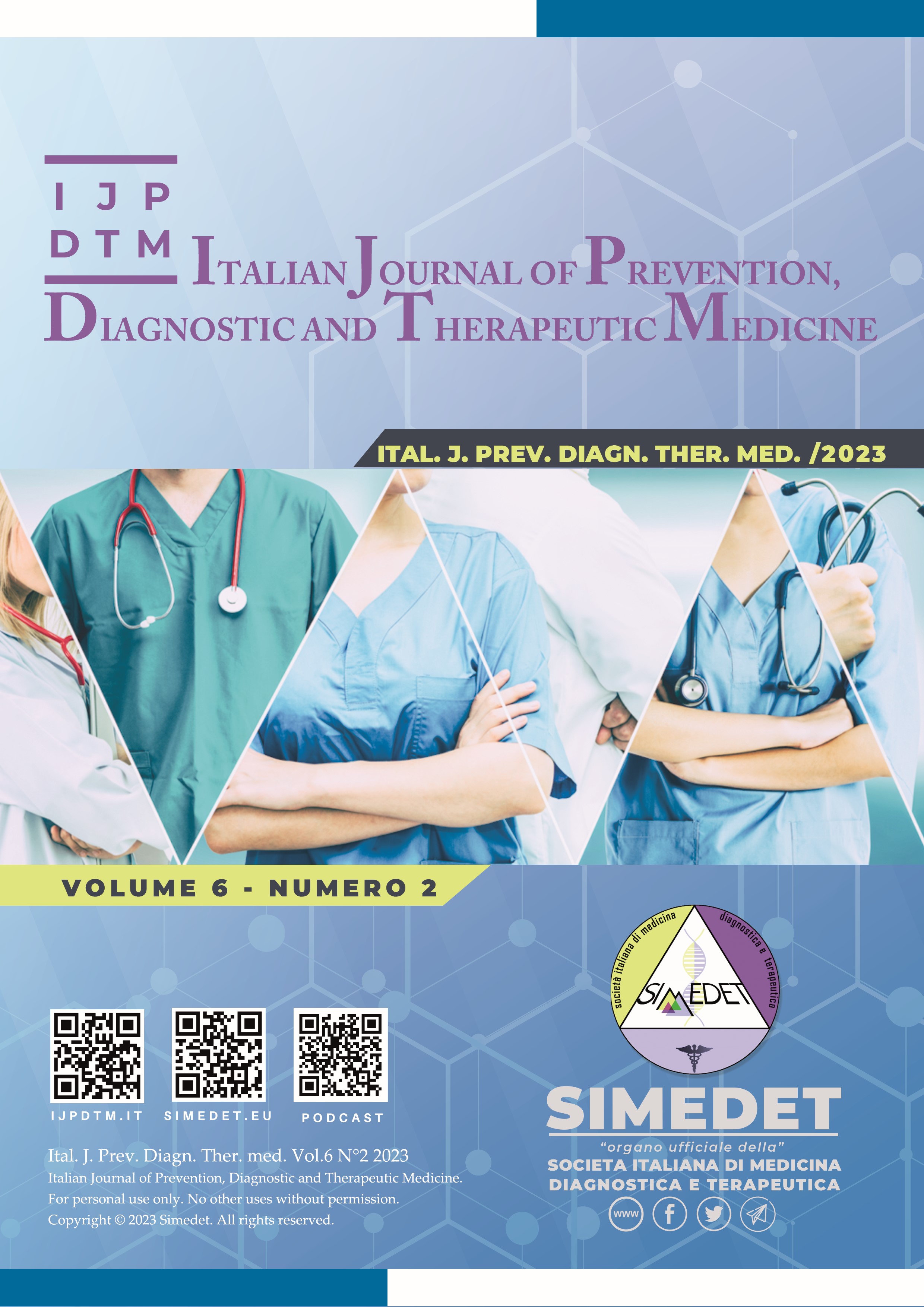Una revisione dell'ambito sull'intersezione tra intelligenza artificiale (AI) e infermieristica opportunità, sfide e direzioni future
Contenuto principale dell'articolo
Abstract
L'intelligenza artificiale (AI) ha assistito a un'evoluzione impressionante negli ultimi anni, con conseguenti applicazioni innovative in vari settori, tra cui l'assistenza sanitaria (Davenport & Kalakota, 2019).
L'integrazione di questa tecnologia nella pratica infermieristica richiede un'esplorazione rigorosa per migliorare la precisione, l'efficienza e l'assistenza personalizzata. La letteratura attuale mostra un crescente interesse per questa intersezione, con prove preliminari che dimostrano sia opportunità significative che sfide notevoli (Topol, 2019).
Downloads
Dettagli dell'articolo

Questo lavoro è fornito con la licenza Creative Commons Attribuzione - Non commerciale - Non opere derivate 4.0 Internazionale.
Riferimenti bibliografici
- Arksey, H., & O’Malley, L. (2005). Scoping studies: Towards a methodological framework. International Journal of Social Research Methodology, 8(1), 19–32. https://doi.org/10.1080/1364557032000119616.
- Benjamin, R. (2019). Race After Technology: Abolitionist Tools for the New Jim Code. Polity.
- Davenport, T., &Kalakota, R. (2019). The potential for artificial intelligence in healthcare. Future Healthcare Journal, 6(2), 94–98. https://doi.org/10.7861/fhj.2019-0021.
- Elo, S., &Kyngäs, H. (2008). The qualitative content analysis process. Journal of Advanced Nursing, 62(1), 107–115. https://doi.org/10.1111/j.1365-2648.2007.04569.x.
- Floridi, L., & Cowls, J. (2019). A unified framework of five principles for AI in society. Harvard Data Science Review. https://doi.org/10.1162/99608f92.8cd550d1.
- Frizzell, J. D., Liang, L., Schulte, P. J., Yancy, C. W., Heidenreich, P. A., Hernandez, A. F., Bhatt, D. L., Fonarow, G. C., &Laskey, W. K. (2021). Prediction of 30-Day All-Cause Readmissions in Patients Hospitalized for Heart Failure: Comparison of Machine Learning and Other Statistical Approaches. JAMA Cardiology, 2(2), 204-209.
- Gordon, W. J., &Landman, A. (2022). Artificial Intelligence in Health Care: Anticipating Challenges to Ethics, Privacy, and Bias. Perspectives in Biology and Medicine, 65(1), 45-57.
- Kwon, J. M., Lee, Y., Lee, Y., & Lee, S. (2022). An Algorithm Using 12-Lead Electrocardiography to Predict Paroxysmal Atrial Fibrillation. Journal of the American Heart Association, 7(2), e007093.
- Holmes, O., Ayers, S., Duarte, C., &Falzon, L. (2021). AI in mental health: Exploring the attitudes of practitioners towards AI in psychological therapy. Counselling and Psychotherapy Research, 21(4), 752-762.
- Levac, D., Colquhoun, H., & O’Brien, K. K. (2010). Scoping studies: Advancing the methodology. Implementation Science, 5(1), 69. https://doi.org/10.1186/1748-5908-5-69.
- Martinez-Martin, N., Kreitmair, K., & Char, D. (2020). Ethical Issues for Direct-to-Consumer Digital Psychotherapy Apps: Addressing Accountability, Data Protection, and Consent. JMIR Mental Health, 5(2), e32.
- Munn, Z., Peters, M. D., Stern, C., Tufanaru, C., McArthur, A., &Aromataris, E. (2018). Systematic review or scoping review? Guidance for authors when choosing between a systematic or scoping review approach. BMC Medical Research Methodology, 18(1), 143. https://doi.org/10.1186/s12874-018-0611-x.
- Peters, M. D., Godfrey, C. M., Khalil, H., McInerney, P., Parker, D., &Soares, C. B. (2015). Guidance for conducting systematic scoping reviews. International Journal of Evidence-Based Healthcare, 13(3), 141–146. https://doi.org/10.1097/XEB.0000000000000050.
- Reddy, S. (2021). The Impact of Artificial Intelligence - Widespread Job Losses. IEEE Spectrum: Technology, Engineering, and Science News. https://spectrum.ieee.org/job-losses-from-ai-there-are-some-things-we-can-do.
- Rudin, C., & Chen, Y. (2020). AI in Health Care: Anticipating Challenges and Opportunities. Journal of the American Medical Association, 324(18), 1837–1838.
- Saria, S., Rajani, A. K., Gould, J., Koller, D., & Penn, A. A. (2020). Integration of early physiological responses predicts later illness severity in preterm infants. Science Translational Medicine, 2(48), 48ra65-48ra65. https://doi.org/10.1126/scitranslmed.3001304.
- Taylor, R. A., Pare, J. R., Venkatesh, A. K., Mowafi, H., Melnick, E. R., Fleischman, W., & Hall, M. K. (2020). Prediction of In-hospital Mortality in Emergency Department Patients with Sepsis: A Local Big Data–Driven, Machine Learning Approach. Academic Emergency Medicine, 23(3), 269–278.
- Topol, E. J. (2019). High-performance medicine: the convergence of human and artificial intelligence. Nature Medicine, 25(1), 44–56. https://doi.org/10.1038/s41591-018-0300-7.
- Topol, E. (2019). Deep Medicine: How Artificial Intelligence Can Make Healthcare Human Again. Basic Books.
- Wong, Z. Y., Zhou, J., & Zhang, Q. (2021). Artificial intelligence for infectious disease Big Data Analytics. Infection, Genetics and Evolution, 77, 104061.
- Wu, X., Guo, X., Zhang, Z. (2021). The Efficacy of Mobile Health Apps for Self-Management in Patients with Chronic Illness: A Systematic Review and Meta-Analysis. Journal of Telemedicine and Telecare, 27(5), 261-271.

